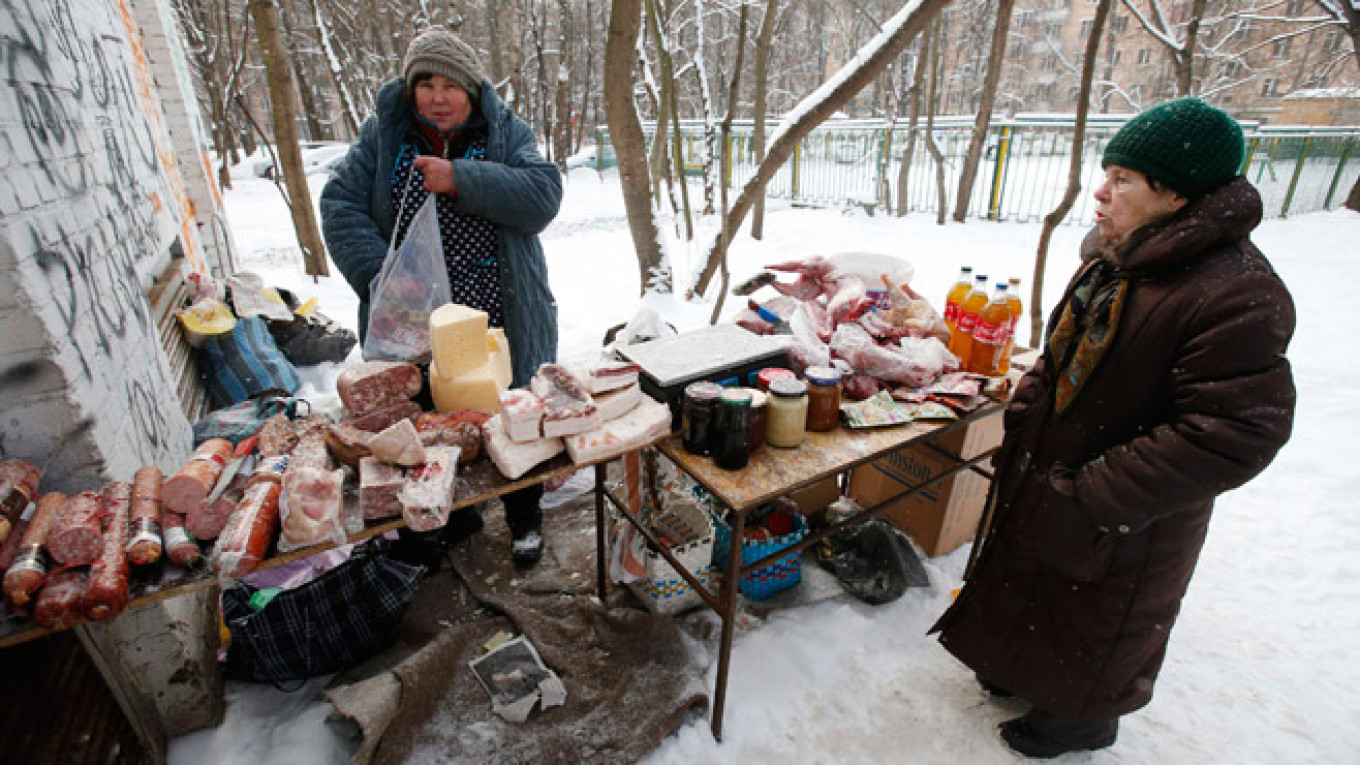A lawmaker who was slammed for saying struggling Russians should battle rising food prices by "eating less," has defended himself by citing the health benefits of going cold and hungry.
Ilya Gaffner, a United Russia lawmaker in the Urals' Sverdlovsk region, said in televised comments last week that the 25- percent increase in food prices in his region was "not that bad" if people managed to control their appetites.
The comment sparked a torrent of criticism, with many accusing the politician of being out of touch with the lives of ordinary Russians.
Far from backtracking on his remarks, however, Gaffner told the local Ura.ru news site on Tuesday that it had been "scientifically proven" that the body functions better when it is cold and hungry.
Gaffner said Russians had traditionally used the period after New Year to "rid their bodies of excesses" ahead of Lent, suggesting this year they would be able to save money while scrimping on servings.
"Maybe I have made a mistake in saying what I really think. But on the other hand, I think: why should I eat my words? I have a big family, and we don't have enough money. Why not save on food?" he told Ura.ru.
To prove the point, Gaffner said he was on a 13-day diet.
"Every day, I eat something different," he said. "Today, tvorog and apples. Tomorrow, rice and tomato sauce. The day after — beef stew. And on top of that I exercise. Of course it's hard. I'm talking to you now, and barely have enough energy," he told the journalist.
Gaffner said the harsh economic conditions would not affect Russians' resilience or their willingness to stand up for themselves and their president.
"We are a special people … We would rather save — go cold and hungry — but win," he told Ura.ru.
Food price inflation in Russia has peaked over a sharp devaluation of the ruble and Western sanctions imposed over Russia's role in the Ukraine conflict. Inflation is expected to accelerate even more this year.
A Message from The Moscow Times:
Dear readers,
We are facing unprecedented challenges. Russia's Prosecutor General's Office has designated The Moscow Times as an "undesirable" organization, criminalizing our work and putting our staff at risk of prosecution. This follows our earlier unjust labeling as a "foreign agent."
These actions are direct attempts to silence independent journalism in Russia. The authorities claim our work "discredits the decisions of the Russian leadership." We see things differently: we strive to provide accurate, unbiased reporting on Russia.
We, the journalists of The Moscow Times, refuse to be silenced. But to continue our work, we need your help.
Your support, no matter how small, makes a world of difference. If you can, please support us monthly starting from just $2. It's quick to set up, and every contribution makes a significant impact.
By supporting The Moscow Times, you're defending open, independent journalism in the face of repression. Thank you for standing with us.
Remind me later.


